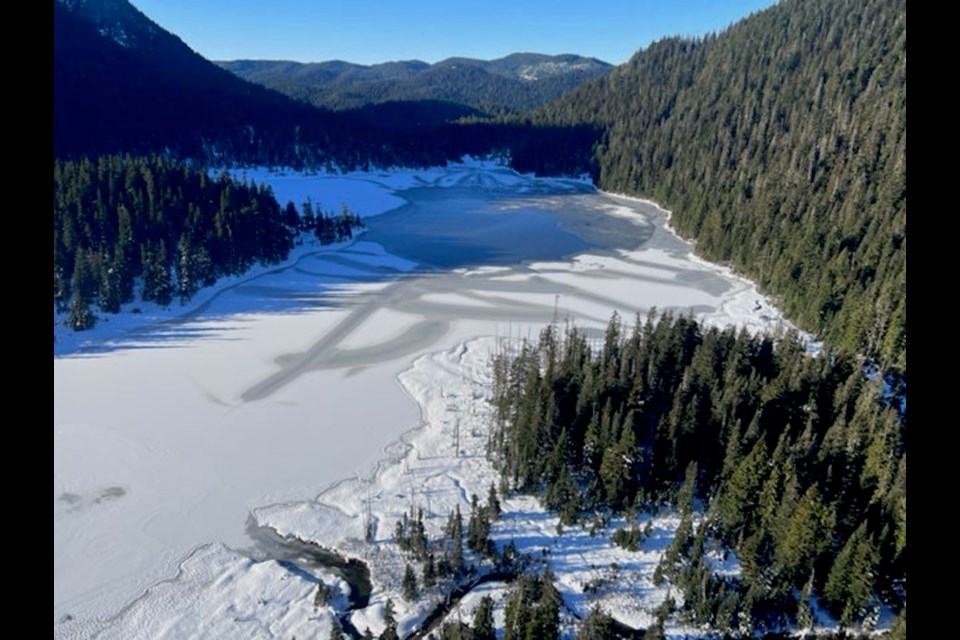Chapman Creek water flows are high enough to put an early end to a state of emergency but Stage 4 water restrictions remain in place for users of the Chapman water system.
The Sunshine Coast Regional District (SCRD) announced the lifting of States of Local Emergency (SOLE) for all affected local governments on the Sunshine Coast on Friday.
On Nov. 15 the SCRD had announced it was extending the SOLE until Nov. 21.
Issues with monitoring equipment as well as increased snow melt appear to have contributed to the cancellation.
“Yesterday, the SCRD received updated creek flow monitoring information that showed creek flows are high enough at this time to cancel the SOLE,” said a Friday press release. “Additionally, SCRD staff went to Chapman Lake yesterday. Available water in the channel has increased slightly thanks to some snow melt in the watershed due to warmer than expected temperatures.”
These combined factors triggered the SCRD to cancel the SOLE since it found there’s enough water available for the community as long as Stage 4 restrictions stay in place.
Staff noticed issues with monitoring equipment used to analyze water flows in Chapman Creek following a storm in early November, according to the release. The equipment was showing water levels were “lower than expected” given the substantial rainfall.
Infrastructure Services General Manager Remko Rosenboom told Coast Reporter the equipment was impacted by a Nov. 4 storm and had to be recalibrated.
In a Nov. 15 news release, the SCRD reported that on the previous day, 200 litres per second was flowing in the lower reaches of Chapman Creek. In contrast, it reported normal flows for this time of year can get up to 1,500 litres per second.
At that time, it raised the potential for the SCRD to go back to the Town of Gibsons to request emergency water to augment supplies for users on the Chapman system.
The release said over the past week staff have been working with consultants “On other forms of measuring the creek flow to ensure that the best information is available to inform important decisions being made through the Emergency Operations Centre (EOC).”
SOLEs have also been lifted for the District of Sechelt and shíshálh Nation Government District.
All orders associated with the SOLEs – including a ban on a number of non-essential uses, such as non-medical cannabis production and concrete production, have also been lifted.
“Our staff have worked hard to get us to this point and I’d like to recognize what they have done to ensure our community has had uninterrupted access to water through a 100-day summer drought and an unprecedented transition to freezing events at Chapman and Edwards lakes,” said newly-elected SCRD Board Chair Leonard Lee in the release. “I also want to recognize the high level of support provided to the SCRD to date by the Provincial Government through Emergency Management B.C. as we dealt with the emergency.”
Sechelt Mayor John Henderson said the community has “stepped up” over the last six months, adding, “we will continue our work with the SCRD to ensure that water sources are brought online as quickly as possible to address any supply emergencies in the coming weeks.”
While the SOLEs may be lifted, the SCRD is keeping its Emergency Operations Centre active.
SCRD staff will be monitoring rainfall levels and their impact on the watershed and Chapman Lake over the next week, in case expected rain is enough to reduce the need for Stage 4 water restrictions, however there’s “an ongoing risk” that more dry weather could increase the water shortage, and that risk remains “until the soils in the Chapman watershed are fully recharged.”
In the release, shíshálh Nation hiwus Warren Paull called for more support from all government levels to ensure adequate supply on the Sunshine Coast. “These past few months have shown the effects of climate change on our land and water supply,” he said. “Moving forward, there must be a collaborative approach with all levels of government involved to secure water supply for the Region.”
Local governments on the Sunshine Coast declared states emergency due to drought within their jurisdictions for the first time on Oct. 17.
– With files from Connie Jordison





